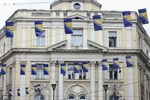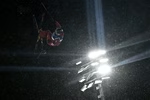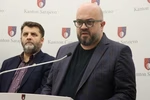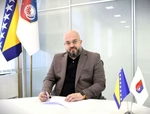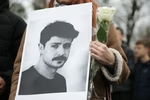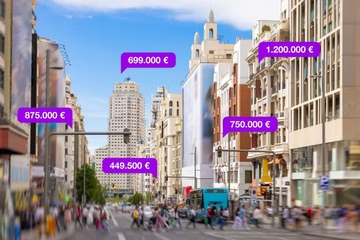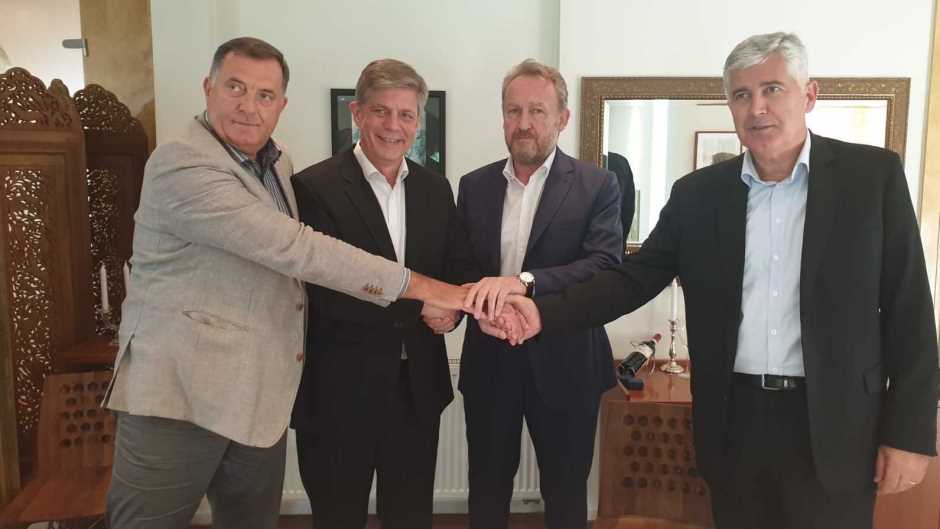
After Bosnia’s political leaders agreed on Monday to form a government 10 months after the election, they appear to be interpreting the document they signed completely differently when it comes to Bosnia’s potential NATO membership.
The Agreement, containing 12 principles that need to be met in order for the government to be formed within 30 days, was signed by the leaders of the three strongest national parties that won the October election - Bosniak Bakir Izetbegovic, from the Party for Democratic Action (SDA), Serb Milorad Dodik, from the Alliance of Independent Social Democrats (SNSD) and Croat Dragan Covic, from the Croat Democratic Union (HDZ).
The main reason they could not agree on naming the new government - in Bosnia officially called the Council of Ministers - is a disagreement on whether the country should become a NATO member or not.
The Bosniak and Croat members of the tripartite Presidency said they will not greenlight the prime minister proposed by the Bosnian Serb member because the candidate is opposed to the country's membership in the alliance.
In line with neighbouring Serbia, the Serb part of Bosnia, Republika Srpska (RS), had declared military neutrality in 2017, which means it opposes membership in any military alliances. Bosnia has previously pursued NATO membership, but in recent years Bosnian Serb politicians have changed their minds.
Among the principles according to which the new government is to be formed is “the commitment for advancing the relationship with NATO without predicting future decisions in relation to membership of Bosnia and Herzegovina.”
According to Dodik, the agreement is in line with what the RS decided in the past.
“The elements of this agreement are in accordance with the decisions of the RS, most of all regarding military neutrality and in that sense cooperation is not questionable, with NATO as well as with other organisations, but membership is not acceptable,” he said, arguing that the agreement does not mention NATO membership.
He expressed optimism that the Government will be formed within 30 days, repeating that the deadlock was “unnecessary,” blaming the Bosniaks for insisting on NATO membership.
According to SNSD spokesperson Radovan Kovacevic, his party leader managed to “protect the constitutional position and interests of Republika Srpska” and did not give in to SDA blackmail.
But SDA leader Bakir Izetbegovic interpreted the signed agreement differently. He implied that NATO membership is still on the table, but that the process will be slowed down in the next few years.
He said the agreement represents “a good political framework which paved the way for what we will do in the next three or four years” and that it contains “all that this country needs.”
“I expect that the cooperation with NATO will continue in the defined framework, there is no going back, that move can only be more intense or slower. I think it will be very slow for the next three years,” he said.
Kovacevic said that Izetbegovic “can keep calling that a path toward NATO, but we will call it what it is according to what we exclusively signed which is that we will cooperate with NATO as we did until now, but that cannot end in membership."
However, the Croat member of the tripartite Presidency and the leader of the Democratic Front (DF) who also withheld support for naming the prime minister over the NATO issue, said that he understood that the Agreement says the Annual National Programme (ANP), an important step toward NATO membership, will finally be sent to the alliance.
“If the ANP is going forward, the mandate is as well,” he said, referring to whether he will vote in favour of the new prime minister.
This is also how Serb Democratic Party (SDS) leader Mirko Sarovic, one of Dodik’s bitter opponents in the RS and the acting Foreign Trade and Economic Relations Minister in a technical mandate, sees it.
He called the agreement a “capitulation” and said that, by signing it, Dodik conceded and agreed to Bosnia and Herzegovina becoming a member of NATO.
“I think that it is not completely clear to the participants what they agreed on. It will be interesting to see how the Agreement will be implemented. This is a capitulation,” he said.
“Now it will become clear who the traitor of Republika Srpska and the Serb people is,” he added.
Yet the leader of the Social Democratic Party (SDP), Nermin Niksic, said the citizens are at a loss when it comes to understanding what the leaders actually have signed.
He said the agreement leads to the break-up of Bosnia and Herzegovina and called upon all parties “that want a normal state” to oppose it, including the parties which entered the ruling coalition - the DF and the Union for a Better Future (SBB).
“The NATO umbrella is necessary for all these turbulent situations,” he said, arguing that it is needed for creating conditions “for people to vote without fear of each other.”
According to political analyst Slavo Kukic, the agreement represents nothing more than “throwing dust in people’s eyes.”
“The essence is that there is some justification for distributing positions,” he argued, noting that immediately after they signed it, Izetbegovic and Dodik gave completely different interpretations.
Yet the European Commissioner for European Neighbourhood Policy and Enlargement Negotiations, Johannes Hahn, praised the Agreement in a social media post.
“Welcome agreement of political party leaders in #BiH to form a new Council of Ministers, facilitated by #EU Special Representative @LarsGWigemark. Important step forward for the country and its citizens + also crucial for the country’s advancement in the #EU integration process!” he tweeted.
Kakvo je tvoje mišljenje o ovome?
Učestvuj u diskusiji ili pročitaj komentare





 Srbija
Srbija
 Hrvatska
Hrvatska
 Slovenija
Slovenija








